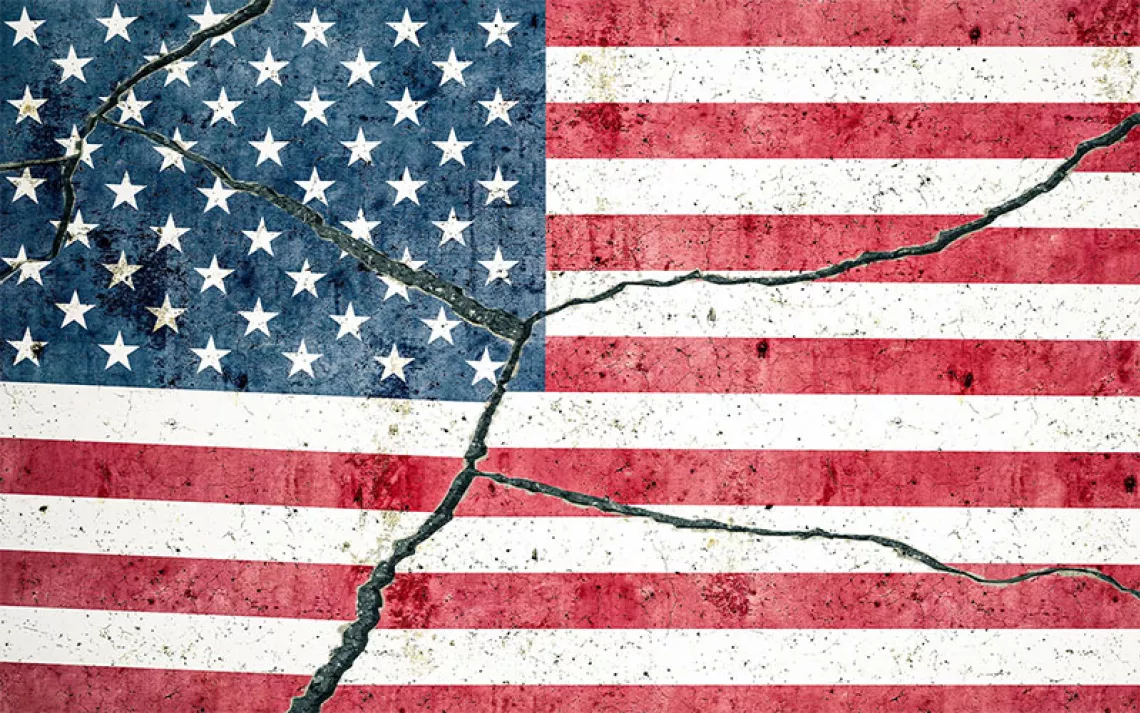DOJ Priority on Environmental Crimes Now in Jeopardy
D.C.’s new sheriffs seem unlikely to make environmental law a priority

Photo by thomaguery/iStock
If you were asked to name the largest category of “organizational offenders” prosecuted by the U.S. Department of Justice, what would you guess? If, like me, your first hunch would be violations committed by organized crime syndicates—well, you’d be wrong. Recently I was tipped off to this report from the U.S. Sentencing Commission, which revealed that in fiscal year 2015 (the last year for which complete numbers are available) the most common organizational crimes prosecuted by the federal government involved violations of U.S. environmental laws.
By "organizational offenders," the U.S. Sentencing Commission means crimes committed by corporations, partnerships, trusts, and trade unions—basically, any crime not committed by an individual person. Given that definition, many of the crime categories aren’t all that surprising. In 2015, federal officials busted a lot of companies for fraud, money laundering, and antitrust violations. Yet the number of environmental offenses equaled all three of those categories' offenses combined. A full third of organizational offenders in 2015 were prosecuted for environmental crimes.
“All of the major environmental laws—the Clean Water Act, the Clean Air Act—have criminal provisions to them,” James Rubin, who served for 15 years in the Environmental and Natural Resources Division of the DOJ and who is now an attorney with the D.C. firm Dorsey & Whitney, told me. You have to show that the person knew that they were committing an act, but not that they knew they were violating the law. If it’s not specific knowledge, it makes it easier to prove the case. . . . If companies want to skip things [i.e., ignore federal regulations], that starts to enter the criminal world.”
Of the environmental crimes prosecuted by the Justice Department in 2015, the largest single category (70 percent) was water-related. That, Rubin points out, follows a long-standing trend of federal officials focusing on Clean Water Act violations. The story gets more interesting once you drill down from there. The second largest category of environmental crimes (about 17 percent) had to do with wildlife trafficking; the increase in wildlife trafficking prosecutions came as a result of the Obama administration’s commitment to cracking down on the trade in endangered species.
The shift in law-enforcement priorities reveals a central truth of how Washington works: A White House focus on any given issue ripples throughout the federal bureaucracy. Of course, what can be done can also be undone, which raises the obvious, unsettling question: Will the pace of environmental-law enforcement slow under the Trump administration?
Prosecution of federal environmental laws starts with the EPA—which has an enforcement unit staffed with special agents who conduct criminal investigations much as the FBI does. The EPA then recommends cases to the Justice Department. If the Senate confirms Scott Pruitt as the new EPA administrator, it seems likely that the pace of criminal investigations and environmental prosecutions could fall sharply. After all, during his tenure as Oklahoma attorney general, Pruitt made clear his contempt for federal environmental regulations.
Doug Parker—who served for 24 years as a special agent in the EPA’s criminal investigation unit and who now has a consulting firm called the Earth and Water Group—cautions that it will take time for the Trump administration to make big changes in law enforcement. “I don’t see anything happening quickly,” Parker told me, noting that it can take a long time to develop cases and that many are already in the pipeline.
But Parker said the new administration could continue to starve the criminal investigation unit of funding, which would hamstring its ability to bring cases to the Justice Department attorneys. He pointed out that, even under Obama, the EPA’s Criminal Investigation Division was understaffed. Although the Pollution Prosecution Act establishes a minimum level of 200 investigators, there were barely 160 agents at the EPA when Parker left the agency last year, due mostly to budget cuts that occurred under sequestration.
EPA budget cuts might already be in the works. According to a memo obtained by reporters at Axios, transition officials have recommended the White House make $815 million in EPA budget reductions.
Parker told me that he can imagine a Pruitt EPA deferring enforcement decisions to state agencies. “You hear a lot of talk from Mr. Pruitt about giving discretion to the states to act,” Parker said. That’s problematic, however, since most state environment and natural resource agencies are unequipped to handle criminal investigations. “If [Pruitt’s] answer is, ‘let the states handle it,’ well, most states don’t have investigative abilities.”
Indeed, according to attorneys from the Sierra Club’s Environmental Law Program, only 20 states have anything like the U.S. EPA’s enforcement division. State law enforcement of environmental rules will essentially mean little-to-no enforcement of environmental rules.
All of which raises one more reason why the Senate should reject Pruitt as EPA administrator: After the Obama administration’s strong track record of prosecuting environmental crimes, putting Scott Pruitt in charge of the environmental law enforcement is like putting the Hamburglar in charge of enforcing hamburger-theft cases.
WHAT YOU CAN DO
Call your senators to make sure the EPA doesn't get taken over by the fossil fuel industry's favorite lawyer.
 The Magazine of The Sierra Club
The Magazine of The Sierra Club



